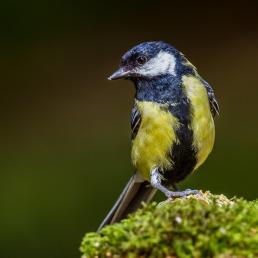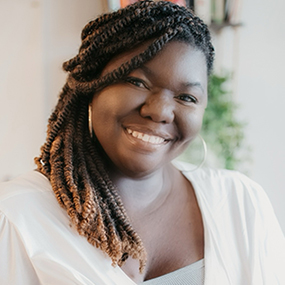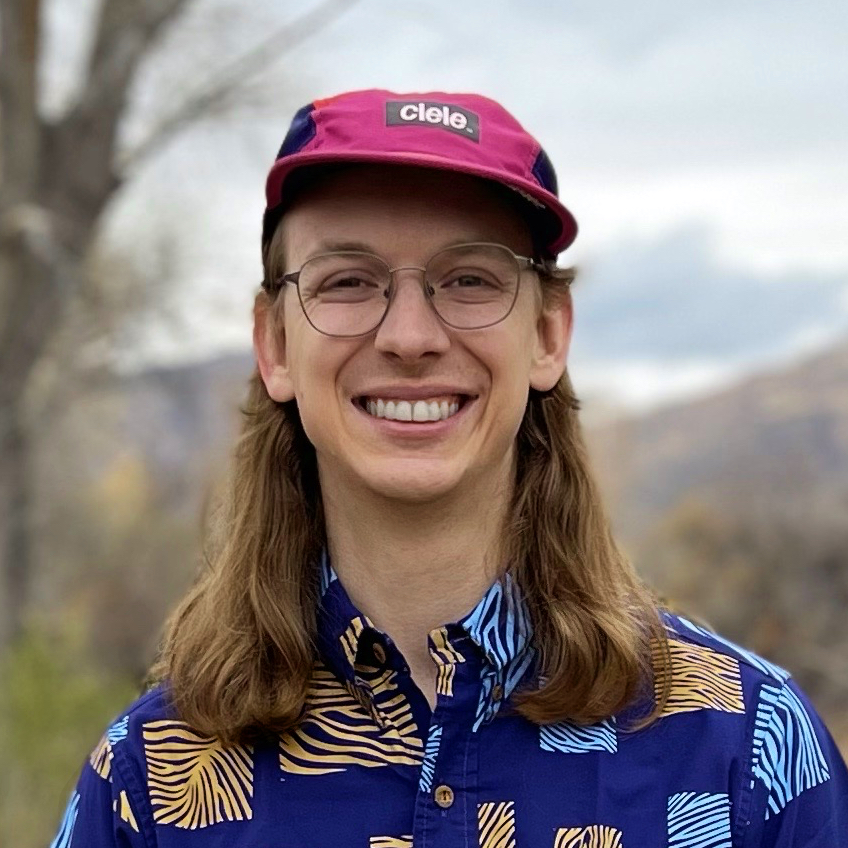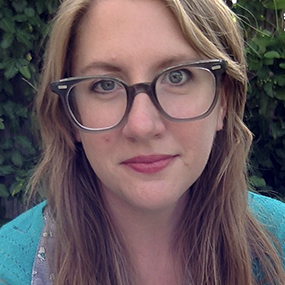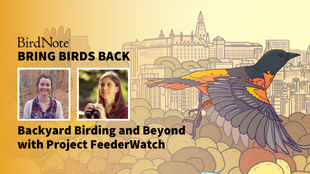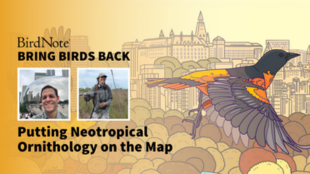

Join BirdNote tomorrow, November 30th!
Illustrator David Sibley and actor H. Jon Benjamin will face off in the bird illustration battle of the century during BirdNote's Year-end Celebration and Auction!
Names have power. In North America, more than 100 species of birds have eponymous names, many honoring white colonizers. The “Bird Names for Birds” movement to change these names, or “verbal statues,” can be traced to Ph.D candidate Robert Driver’s 2018 proposal about the Thick-billed Longspur (then called McCown’s Longspur, named for a confederate general). More bird name changes are coming, albeit slowly — and some environmental organizations named after colonizers are following suit. One is the Audubon Naturalist Society (ANS) in DC, which has announced it will change its name (at this time, they’re still deciding on a new name). Tenijah talks to Robert Driver about how the movement started; Caroline Brewer, formerly in communications at ANS about the decision to change the organization’s name; and writer/birder Stephen Carr Hampton about the impact these names have on people of color who love birds.
Tenijah Hamilton: BirdNote Presents
[Echoing Wingflaps SFX]
Tenijah Hamilton: From BirdNote, this is Bring Birds Back. I'm Tenijah Hamilton.
[Somber ambient music begins]
Tenijah Hamilton: Names can carry a lot of power and meaning. They tell stories about who we are and what matters to us. And today, we’re looking at bird names — specifically honorific names, like, where they’re named after a person. Clark’s Nutcracker, Bachman's Sparrow, Townsend's Warbler — there’s more than 100 birds in North America with honorific names.
And you might not know it, just hearing those bird names, but a number of these people who have birds named after them have a legacy of hate and violence — John Bachman was an anti-abolitionist who preached white supremacy, John Kirk Townsend dug up graves of Indigenous people to collect skulls for white-supremacist pseudoscience.
I talked about this issue with Steve Hampton, a birder, a writer and a citizen of Cherokee Nation. He lives in Washington State, and he sees this type of naming everywhere — from the birds and plants in his yard to the streets of his town, and even the name of his state.
[Somber ambient music fades out]
Steve Hampton: I live in Port Townsend. Most of the streets in this town are named after presidents, fine. Then they named a lot of the cross streets after generals — Sheridan, Kearny, Grant, Jackson — I mean the only one we don’t have is a Custer. We're surrounded by names that celebrate colonial occupation.
Tenijah Hamilton: For Steve, there's one bird name in particular that really gets to him: Scott’s Oriole. Many of his ancestors were forced along the Trail of Tears, where the U.S. government forcibly removed the Cherokee, Muscogee, Seminole, Chickasaw, and Choctaw tribes from their homes in the southeast and forced them to walk over 2,200 miles to Oklahoma. Around 15,000 Native Americans died along the way. And the Army general who led the Native Americans on this infamous death march? A man named Winfield Scott.
Steve Hampton: In 1852, he ran for president of the United States. And he was a major political party candidate. And then two years later, Couch, who served in the army under him, essentially rediscovers this oriole in Arizona or New Mexico. Its range is basically the range that the U.S. got from Mexico in the Mexican-American war.
Tenijah Hamilton: Mhm.
Steve Hampton: Like it's a poster child of that land acquisition. So he renames the bird after Scott, who was his boss. So that's like someone naming a bird today after Mitt Romney or Hillary Clinton or Donald Trump.
And people say, well, it was acceptable at the time. And I'm thinking, no, it was not. I'm sure it was not acceptable at the time. I'm sure there were people that were opposed to it. And I can tell you, if you were to ask the Cherokees, they would have been opposed to it.
Tenijah Hamilton: Mhm.
Steve Hampton: That's another one of my concerns is when people talk about the social standards of the time, they're really only talking about the white social standards of the time…
Tenijah Hamilton: And men specifically, too.
Steve Hampton: Right, because Blacks and the Native Americans would have been opposed to a lot of these names. So when we say social standards have changed, it's centering the moral discussion around the white community. There was no vetting done. It was a broken process at the time.
Tenijah Hamilton: Whoever first quote unquote “discovered” the bird or wound up with the first scientific specimen usually got to name it whatever they felt like. After themselves, after their buddies, and after polarizing politicians.
In the last few years, there’s been a growing movement called “Bird Names for Birds.” Essentially, interrogating these honorific names and whether they represent the birds, and advocating for names that reflect the birds themselves.
If this feels reminiscent of the debate around Confederate statues, that's because that's where this movement started, at least in its current form.
[Dark, building music begins]
Tenijah Hamilton: Back in the summer of 2017, there were fierce debates about taking down Confederate monuments. At the height of this was the “Unite the Right” rally in Charlottesville, VA, where far-right groups protested the removal of the statue of Robert E. Lee from what was then known as Lee Park, arguing this was erasing Southern Heritage. Counter-protestors spoke against the hateful legacy of these monuments. By the end of the weekend, a woman was killed by a white supremacist.
A few hours south, Robert Driver was a graduate student studying bird evolution at East Carolina University. The monument conversation made him think about bird names, and all the ones with painful histories and Confederate tie-ins that he would like to see changed.
Robert Driver: I knew that there were some birds named after military officials throughout American history. And I just wanted to go back and see, you know, these issues that we're talking about in society right now, particularly around the Confederacy, do these affect any bird names?
[Dark music fades out]
Tenijah Hamilton: And Robert found, yeah, there are a lot of birds named after people who were white supremacists. But one stood out to him: McCown's Longspur, named for Confederate general John McCown. He commited genocide against Native Americans, opposed the abolition of slavery, and was a high-ranking officerin the Confederate Army.
Robert Driver: So as I was learning about it, those details further fueled me to consider this as something that the community needs to look into as well.
Tenijah Hamilton: So Robert thinks, maybe this is a way I can help in this movement of removing Confederate monuments — by removing the verbal statues in bird names like for this longspur.
Robert Driver: I wanted to change this and believed that at least a portion of the community also would. The only way to do that is to write these proposals to the NACC.
Tenijah Hamilton: The NACC is the North American Classification Committee. And this committee is part of the American Ornithological Society or the AOS. The NACC sets the official names for birds and keeps track of all the different species. Their goal is to make sure the birder and scientific communities all have a common reference point. The NACC has around 10 members, all appointed directly by the AOS president. And this small group of ornithologists have, historically, been mostly white. If you have an issue with a name, whether it's because of a scientific discovery — like finding out what had been considered one bird species was actually two genetically distinct species — or because you learned about the hateful legacy of John McCown, your only recourse is to take it to the NACC as a proposal.
So Robert does this — he writes a proposal detailing the history of John McCown, he submits it, he waits — a long time, actually. And the chances of it getting accepted were slim.
Robert Driver: I was not optimistic to be honest. The AOS, the NACC, really doesn't want to change names unless there's a very good reason. And usually that very good reason is due to some new molecular data showing some different relationships between species. Okay, now we have to rename them. Even those are done reluctantly or with a lot of evidence needed to back them up. So my proposal, which is on a, inclusiveness, diversity, train of thought. I wasn't optimistic that they were going to go for that. But I wrote it anyway.
Tenijah Hamilton: But you wrote it anyway.
Tenijah Hamilton: And wouldn't you know it, against all odds, the NACC unanimously voted to — nah I'm just kidding. They shot it down.
Robert Driver: I believe there was one yes and one abstain. But almost every member I believe said no and provided their rationale for it.
Tenijah Hamilton: The members of the NACC explanations for their decisions are all public, all online. Reasons ranged from “McCown made important contributions to ornithology” or “the stability of bird names is more important than this diversity initiative” to if we start, where do we draw the line?" One that really stood out to me: "the only negative I really see for him is that he chose to go with the confederates rather than the union when the Civil War broke out."
You know what struck me here in this smorgasbord of gobsmackingly bad takes? The way this reviewer minimizes McCown’s agency in deciding to join the confederate army. McCown did not casually “chose to go” with the confederates; he explicitly opted-in to fight for the side that was trying to protect and preserve the institution of chattel slavery.
Today, in 2022, we are still feeling the echoes of those choices. History is not neutral, neither are the legacies of these men nor the names we bestow in order to commemorate those legacies.
So, yeah. The chances of the NACC taking up this cause didn't seem super promising. It just kind of lay dormant for over a year — until the murder of George Floyd and the movement that followed.
Robert Driver: That caused a re-examination of this proposal and the feedback related to it. This push from the birding community and Bird Names for Birds really came up.
Tenijah Hamilton: The Bird Names for Birds movement, led by birders Jordan Rutter and Gabriel Foley, brought a new level of attention to the issue of these honorific names as a whole, spotlighting Robert’s proposal in particular. The chair of the NACC reached out to Robert, and told him that they were paying attention to this cultural moment. The NACC had a kind of emergency meeting to re-review just Robert’s proposal, with some more biographical details about McCown added by the NACC. And the result? McCown's Longspur is no longer McCown's Longspur.
Robert Driver: That's right. It is now the Thick-billed Longspur.
Tenijah Hamilton: The NACC came up with the bird’s new name. Among other things, that new name conjures an image of the bird’s thick beak — a name that makes it easier for a new birder to learn what the bird actually looks like.
But the fact that the NACC initially dismissed Robert's proposal after waiting a year, and then rapidly approved a slightly revised proposal for the same bird in a matter of weeks… amid global protest... it raises the question: is the American Ornithological Society in it for the long-haul? In the two years since, they've made statements and put together a committee to address the issue. But they're still not accepting new proposals about honorific names.
Still, Robert has kept busy the past couple of years — he’s started work on more proposals to submit whenever the NACC finalizes their process — starting with Scott’s Oriole, the bird that Steve Hampton talked about finding so hurtful.
Robert Driver: I had proposals ready and drafted. I actually published one of them on our lab website for Scott's Oriole. I was ready to go and here we are. So…
Tenijah Hamilton: I, I can't imagine how that feels for you. Uh, one step forward, two steps back. I don't know.
Robert Driver: I do believe in the AOS. I have to keep telling myself that. I believe in the AOS. That, give them enough time, they'll work this out. They'll get this right. But the fact that right now we could have been having name changes, for right now in this moment, we're frozen and we are slow.
Tenijah Hamilton: When asked for comment, AOS reiterated that they're "committed to changing exclusionary and potentially offensive common bird names, and we want to do it in a way that is judicious, transparent, thoughtful, and inclusive." They say they're trying to build a deliberate process and include diverse perspectives from birders and ornithologists. They’ve added more people of color to the NACC.
But, so far, NACC has still only approved one new name change, and there are well over 100 honorific bird names to review — not all with a legacy as troubling as McCown’s, but all worth reconsidering.And the NACC couldn't share any timelines on when we might see more actual name changes.
Steve Hampton, who you heard from earlier, hopes that the broader birding community can really be involved in any new process for changing bird names.
Steve Hampton: The fun part is going to be coming up with the new names. And if that's done right, with some public involvement, it can really, I think, energize interest and passion for bird conservation.
Tenijah Hamilton: There are lots of different directions we could go for naming. One is what’s been suggested by the Bird Names for Birds movement — giving names that describe something about the bird, like the now Thick-billed Longspur. Or they could be named for parts of their habitat. This is actually what's been suggested for Scott's Oriole.
Steve Hampton: The bird is associated with the Yucca plant, so “Yucca Oriole.” I love that name because Yucca is a purifying plant, certainly among the Pueblo.
Tenijah Hamilton: Steve also has ideas for Bachman's Sparrow, named after anti-abolitionist John Bachman:
Steve Hampton: And if we could move from a name that means nothing or a name that's alienating to people, to something like Pinewood Sparrow, Palmetto Sparrow, palmetto being on the flag of South Carolina. So, I think there are names that could engender that kind of sense of community ownership in a way, or that this bird is part of our community.
Tenijah Hamilton: Another possibility suggested for new names has been to use Indigenous names for birds. It could potentially be tricky deciding which name to use when many birds are found across the land of multiple tribes. But...
Steve Hampton: Any conversation about that needs to involve tribal consultation. So if you could get all the representatives of a tribe within the range of a certain species together, and they could come up with a name, that's fantastic. Franklin's Gull, the Latin name is pipixcan, which is Aztec. Cause I think a specimen might've been taken down there. I was looking at Steller's Eider. So the name for Steller's Eider in Ugiuvak, which is the town formerly known as Barrow. The name in that language translates, to basically, “bird that sat in the campfire.” Because its belly is all this kind of burnt, orange, red color.
Tenijah Hamilton: Oh, that’s kind of beautiful.
Steve Hampton: Yeah, I mean, how cool does Fire Eider sound, right? So I think there are English names we could derive from native names.
[Quiet, sad yet hopeful music with birdsong enters]
Tenijah Hamilton: After the break, we're looking beyond the names of the birds themselves to the names of birding and conservation organizations, and how their names impact that same sense of community. That's after this.
[Quiet sad music fades out]
[MIDROLL AD BREAK]
Tenijah Hamilton: This is Bring Birds Back, I'm Tenijah Hamilton. And for the second half of today's show we're looking at name changes not for the birds themselves, but for birding organizations.
There isn't a name as synonymous with birding as John James Audubon, famed for his paintings of birds in his magnum opus “The Birds of America.” There are dozens of conservation organizations and chapters named after him across the US. But his legacy also includes owning numerous enslaved people, relying on Black and Indigenous knowledge of birds in an area to help him quote “discover" new species, and desecrating the graves of Native Americans. Tying birds and conservation so closely to a man like that can make an opening statement to people of color: you are not welcome here.
The biggest of these organizations is the National Audubon Society, which many state chapters are a part of. But a number of the earliest states and chapters remained independent orgs — including the Audubon Naturalist Society or ANS near Washington D.C. They've been around since 1897. And in 2021, they announced that they're retiring the Audubon name because of the complicated legacy that it carries.
Caroline Brewer: When I first learned about his history, I found it shocking on every level.
Tenijah Hamilton: This is Caroline Brewer. She’s the former director of marketing and communications for ANS, and was integral to the decision to remove John James Audubon from the name of the society.
Caroline Brewer: The fact that he was an enslaver. And he held racist, white supremacist views about Black people and about Native people. And he was cruel to them. I mean, vicious, barbaric, in fact. And so with the racial reckoning, more and more of that part of his story has come out and it's led people to rethink their association with him.
Tenijah Hamilton: ANS recently announced that y'all will be changing the name. Um, and it seems like y'all are still deciding what the new name would be, and that's kind of a work in progress, but what spurred ANS to do this?
Caroline Brewer: Well interestingly, the Audubon Naturalist Society's name, ANS, has been the subject of confusion for a long time, because it has same letters as the National Audubon Society. So people often confuse the two. So the subject of changing the name had been on the table for a long time.
But when George Floyd was killed in the spring of 2020, and people started to examine racism and white supremacy in their own institutions, and Black people started to point out where they saw a need for racial reckoning, the environmental community began to undertake that process as well. And people began writing about the racist history of a lot of the so-called mainstream conservation organizations.
Tenijah Hamilton: Was that also reflective of the feelings and the conversations you were having within the Audubon Naturalist Society? And did that change your feelings about the organization?
Caroline Brewer: The leadership of the organization and most of my colleagues were very much in favor of pursuing a name change. Confronting what we were learning about John James Audubon, and what some people, frankly, probably knew for quite some time.
But because ANS is a membership organization, it needed to inform its members that it wanted to go down this path and that it wanted their input. And so ANS opened up a survey, letting people know the discussions that we've been having, and asking them to weigh in on whether they thought the name should be changed. And it was a close vote, because ANS's membership is overwhelmingly white. I don't know what the percentage is, but it's more than 90% white, upper middle class, and older. It was a teeny tiny majority that said that ANS should pursue a name change.
Some people are very attached to John James Audubon and they cannot separate his legacy as an artist, who painted birds so prolifically from their own experiences. So I understand that, but at the same time it's so strange to me because on the one hand, people want to say, oh, you know, my family didn't enslave people. You know, I don't know anything about that, I don't believe in that. But yet you continue to revere people who did. You continue to think that they deserve the same place in history that they've always occupied.
And frankly, we would all be better off by embracing the truth, as difficult as it is. Because what it gives you the opportunity to do is now accept responsibility for your role in the future, it is true. This is your opportunity to be a part of a new America, of a new history and of a true America. This is your chance. Because the founding fathers, I'm sorry, they screwed it up. They didn't get it right. They left too many people out of the equation. Women, Indigenous people, Black people, you know, and certainly other people of color who came along afterwards. You know, so this is our chance to do something, to make it right, so that we all have the opportunity to live and breathe as freely as humanly possible.
Tenijah Hamilton: Mm. Oh, you're up here teaching today, Caroline. So the name change only happened by a very teeny, tiny majority. Did that feel to you like, yes, we have enough to get us over. Like, there's some hope here. Or did it feel discouraging to think that it was so close this day in age? And, and I'm, you know, I'm, I'm trying to imagine how that would feel being a part of that effort as a Black woman, and knowing that my, my perspective, potentially, would not be the one that's an overwhelming majority. So I'm very curious to how that felt to you.
Caroline Brewer: Um, being the director of marketing and communications for the organization for nearly five years, I was clear about who the members were. And so I was not surprised that it was close.
The other important thing is that what I said about the name change, is that that is one step. It's an important step, but it's not nearly as important as what the organization does in response to this racial reckoning. You know, it could become window dressing. And that, frankly, would sicken me. That would get under my skin a whole lot more than a razor thin margin of people voting in favor of a name change, because this is where the proverbial rubber meets the road. You know, it's not just what you call yourselves. It's: how do you show up in the world? How do you show up for Indigenous people, for Black people, for Latinos? Yes, you need to disassociate yourself from the name of John James Audubon. But if that is where you start and where you end, then do not expect your relationships with people of color to change. Don't expect them to grow. Don't expect them to strengthen. And if you do that, you're doing more harm than if you just kept your name the same and said “this is how we want to be identified.”
Tenijah Hamilton: Changing a name is not a magic wand, it doesn’t automatically gain trust or fortify new community relationships. There is no substitute for the hard work, the hard conversations and — the hard truth. And building a more inclusive conservation community may just be our only shot at saving the planet:
Caroline Brewer: We are in a fight to save our only home. This is not only the only home for wildlife, it's the only home for humans. And, if this is our only home, we should want everybody who lives here to have a say in how to protect it. Nobody should feel alienated. Nobody should feel that they're not valued. Nobody should feel that they're not respected. And, you know, the majority of the planet doesn't live in the west. So if western environmentalism could save the planet, it would have already done that. And it hasn't. We need everybody. Indigenous folks all around the world are really good at protecting their part of the world. We need their voices at the table. Black people who live in all Black communities are really good at fighting for the health and the wellbeing of their communities. We need their voices at the table. The same for our Latinx friends. You know, they know more about what's happening in their communities than we do.
[Energetic, plucky, hopeful music begins]
Tenijah Hamilton: Thank you so much, Caroline. This has been a really incredible conversation and I learned so much, you were really up here teaching. And I just really appreciate the obvious love and voracity that you go about this work. It's great to be a part of it and to witness it.
Caroline Brewer: Oh thank you so much.
[Hopeful music solo]
Tenijah Hamilton: When we go back to the idea that names are linked to the story of us, and who and what we’re made of — we’re compelled to examine exactly the story we want to tell. Sure, we can’t rewrite history. But through the choices we make, we can choose which stories to tell, to honor — and to exalt.
100, 200, 300 years from now, what do we want our legacy to be? What vestiges of the past do we want to leave as hope for the future? I hope it’s one of tolerance, belonging, and awesome birds.
Bring Birds Back is produced by Mark Bramhill and me, Tenijah Hamilton. Sam Johnson is our production assistant. We're edited by Oluwakemi Aladesuyi and Allison Behringer of Rough Cut Collective. Our fact checker is Conor Gearin. Our Content Director is Allison Wilson. Scoring is by Cosmo Sheldrake and Blue Dot Sessions. Special thanks to Viki Merrick and Rehka Murthy.
[Hopeful music fades out]
######################
MUSIC:
“Stock Still”, “Fissure Forming”, and “Cornicob” by Blue Dot Sessions
“Nightingale Part 1” by Cosmo Sheldrake
About guest Steve Hampton:
I am Steve Hampton, citizen of Cherokee Nation. Though I have a PhD in natural resource economics, I confess I know more about birds than I do about economics. I recently retired as Deputy Administrator at the California Department of Fish & Wildlife’s Office of Spill Prevention and Response, where I was involved in natural resource damage assessments, seabird restoration, and tribal relations (among other things). My special bird interests are avian responses to climate change, gull identification, and Fox Sparrows subspecies identification. I have recently migrated from Davis, California to Port Townsend, Washington.
About guest Robert Driver:
Robert Driver is a PhD candidate in the Department of Biology at East Carolina University, studying the evolution of bird olfaction. In 2018, he wrote a proposal to the American Ornithological Society’s North American Classification Committee (AOS NACC) to change the English name of McCown’s Longspur (Rhynchophanes mccownii) based on John P. McCown’s record as a general in the Confederate Army during the Civil War. Although rejected by the AOS NACC in 2019, his proposal sparked public debate about the meaning and significance of bird names. This debate accelerated following events in 2020 related to George Floyd’s death, when many aspects of American life were examined closely with a more inclusive perspective. Following a second proposal submitted by Robert and the AOS NACC, the McCown’s Longspur was formally renamed the Thick-billed Longspur in January 2021.
About guest Caroline Brewer:
Caroline Brewer is an environmentalist who creates events, hosts conversations, and writes books designed to uplift wildlife and human life. She is a professional speaker, children’s author, literacy activist and consultant. Ms. Brewer also is the former Chairwoman of the Taking Nature Black Conference of the Audubon Naturalist Society (ANS), and served as ANS’s Director of Marketing and Communications until late 2021.
